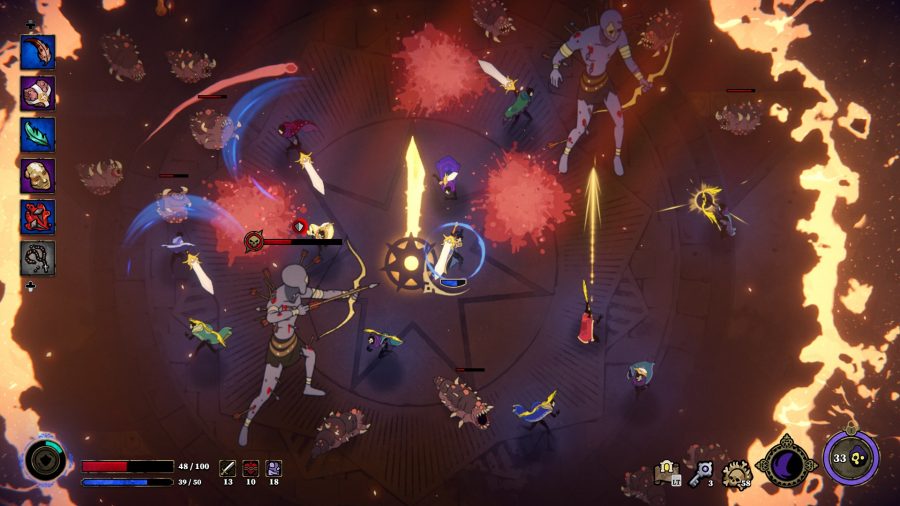The race between tech companies aiming to tell you what to do with your free time will heat up tonight with the midnight launch of version 3.0 of location-based social network Foursquare. According to the company, its long awaited recommendations feature will be included.
It’s one thing for Amazon or Netflix to recommend movies or other products you might like (that’s a huge business), it’s another thing for an automated system to tell you where you should go when you walk out the door of your house, what real-world venues you should patronize. That’s something a whole lot of companies are going to try to tackle, including Google and Facebook.
The Enormity of Real-World Recommendations
Inside every “where should I go?” question there are other big questions, like: What should I eat? What should I buy? What should I do with my leisure time plus expendable income? What should I do with my life? Foursquare would love to be a service that regularly answers those questions for millions of people.
It’s a very ambitious goal. It’s reminiscent of the question Google has answered, “What Web page should I look at for information about my interest?” As big as the Web is, though – the offline world is bigger, richer and can be more interesting. Win at recommendations offline and your Web application has really done something big.
Real-world place recommendations are higher risk (in terms of expense to the user who makes a purchase, the effort required and maybe social cost) but also much higher reward (in terms of lived experience gained and potential commercial activity) than online shopping or media consumption are. Can Foursquare get recommendations right and capture some of this huge potential?
What Foursquare Brings to the Table
Foursquare first began talking publicly about experiments with recommendation technologies six months ago. Three months ago the company posted a job opening for a data scientist, believed by observers to be someone who would focus on building out the recommendation technology.
Nearly two years after launching, the company now says it is fast approaching 7.5 million users and has recorded 500 million user check-ins. Foursquare doesn’t disclose the number of venues it has indexed but one estimate is about 10 million bars, restaurants, parks, stores and other places across the world. If that number is accurate, that would mean there’s been about 50 check-ins per venue on average. That sounds like a healthy little data set to analyze for recommendations.
Here’s how the company said today that data will be put to use:
The idea is pretty simple: tell us what you’re looking for and we’ll help you find something nearby. The suggestions are based on a little bit of everything – the places you’ve been, the places your friends have visited, your loyalty to your favorite places, the categories and types of places you gravitate towards, what’s popular with other users, the day of the week, places with great tips, the time of day, and so on. We’ll even tell you why we think you should visit a certain place (e.g. popular with friends, similar to your favorite spots). You’ll find it’s helpful for general things like “food”, “coffee”, “nightlife” (we built in quick access to these searches) and you’ll be surprised by what you get when searching for really specific things, like “80s music,” “fireplaces,” “pancakes,” “bratwurst,” and “romantic.” The more random you get, the more interesting the results get (though be patient with this first release… sometimes we can’t find every random thing).
Factors Contributing to the New Foursquare Recommendations
Your friends’ history
Your loyalty to your favorite places
Your favorite categories
Popular places across all users
What day of the week it is
The time of day a request is made
The quality of tips a place has
What topical experts have to say.
And outside of the “Explore” tab, you’ll see some of this thinking starting to surface on the “Me” tab as well. As we started to tinker with our recommendations algorithms, we started to see “expertise” starting to emerge from the data – we’re seeing friends that have been to every karaoke place within 10 miles or tried every burger in Los Angeles. The new “Me” tab surfaces some of this, letting you seek guidance from your friends on the categories and places they explore most.
Now, with over half a billion data points, and with every additional check-in and every tip, foursquare gets a little smarter for you, your friends, and the rest of the community. We’re already finding this can be just as helpful for finding a brunch spot in your neighborhood as it can be for helping you navigate a new city for the first time.
That sounds great, but the proof will be in the pudding of course. It’s great to hear that this complicated problem is being approached with at least nine different factors taken into consideration.
A Design Challenge
With that many moving parts, there will be engineering challenges for Foursquare for sure – but the resulting experience is what will matter most. Users will be able to know right away if recommendations are for places they have been intrigued by or places they know already and dislike. It’s going to take some finesse to really be compelling.
“Machine learning,” wrote Joseph Reisinger in a recent blog post titled Why Generic Machine Learning Fails, “is not undifferentiated heavy lifting, it’s not commoditizable like EC2, and closer to design than coding. The Netflix prize is a good example: the last 10% reduction in RMSE wasn’t due to more powerful generic algorithms, but rather due to some very clever thinking about the structure of the problem; observations like ‘people who rate a whole slew of movies at one time tend to be rating movies they saw a long time ago’ from BellKor.”
Will the Foursquare team be able to look at all the diverse kinds of data it has and thread the needle of the mobile, location-based, game-like, social experience in a way that means users look to it for recommendations of places to go in the offline world? Is this the feature that makes the millions of people who’ve looked at Foursquare and asked “what’s the point?” reconsider their perception of an abscence of value?
“I actually think most people don’t want Google to answer their questions,” Google’s then-CEO Eric Schmidt said last summer. “They want Google to tell them what they should be doing next.”
Google is far from the only company that will aim to solve that problem.
Foursquare 3.0 for iPhone and Android should be available for exploring starting late tonight.










